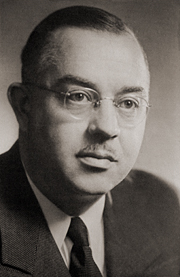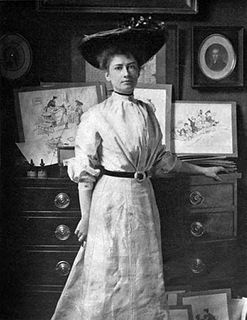A Quote by Thomas Carlyle
Our works are the mirror wherein the spirit first sees its natural lineaments. Hence, too, the folly of that impossible precept, Know theyself; till it be translated into this partially possible one, know what thou canst work at.
Related Quotes
It seems that wherever the Welfare State is involved, the moral precept, "Thou shalt not steal," becomes altered to say: "Thou shalt not steal, except for what thou deemest to be a worthy cause, where thou thinkest that thou canst use the loot for a better purpose than wouldst the victim of the theft."
Heard melodies are sweet, but those unheard Are sweeter: therefore, ye soft pipes, play on; Not to the sensual ear, but, more endear'd, Pipe to the spirit ditties of no tone. Fair youth, beneath the trees, thou canst not leave Thy song, nor ever can those trees be bare; Bold Lover, never, never canst thou kiss, Though winning near the goal yet, do not grieve; She cannot fade, though thou hast not thy bliss, For ever wilt thou love, and she be fair!
When you start out on a career in the arts you have no idea what you are doing. This is great. People who know what they are doing know the rules, and know what is possible and impossible. You do not. And you should not. The rules on what is possible and impossible in the arts were made by people who had not tested the bounds of the possible by going beyond them. And you can. If you don't know it's impossible it's easier to do. And because nobody's done it before, they haven't made up rules to stop anyone doing that again, yet.
That, chang'd thro' all and yet in all the same, Great in the Earth as in th' Ætherial frame, Warms in the Sun, refreshes in the Breeze, Glows in the Stars, and blossoms in the Trees... Breathes in our soul, informs our mortal part... Submit - in this, or any other Sphere, Secure to be as blest as thou canst bear. All Nature is but Art, unknown to thee; All Chance, Direction which thou canst not see; All Discord, Harmony not understood... All partial Evil, universal Good.
The physical body is an agent of the spirit and its mirror. It is an engine and a reflection of the spirit. It is the spirit's ingenious memorandum to itself and the spirit sees itself in my body, just as I see my own face in a looking glass. My nerves reflect this. The earth is literally a mirror of thoughts. Objects themselves are embodied thoughts. Death is the dark backing that a mirror needs if we are to see anything.






































